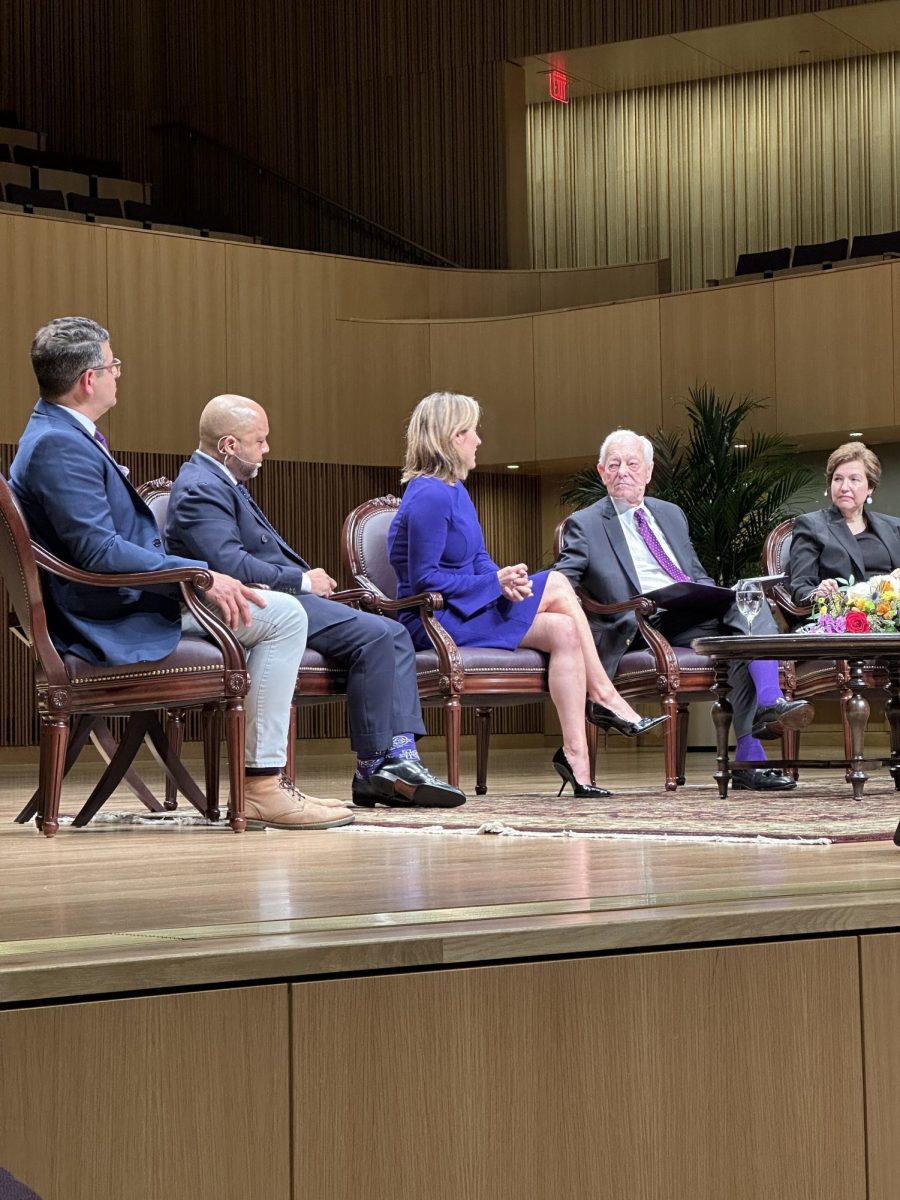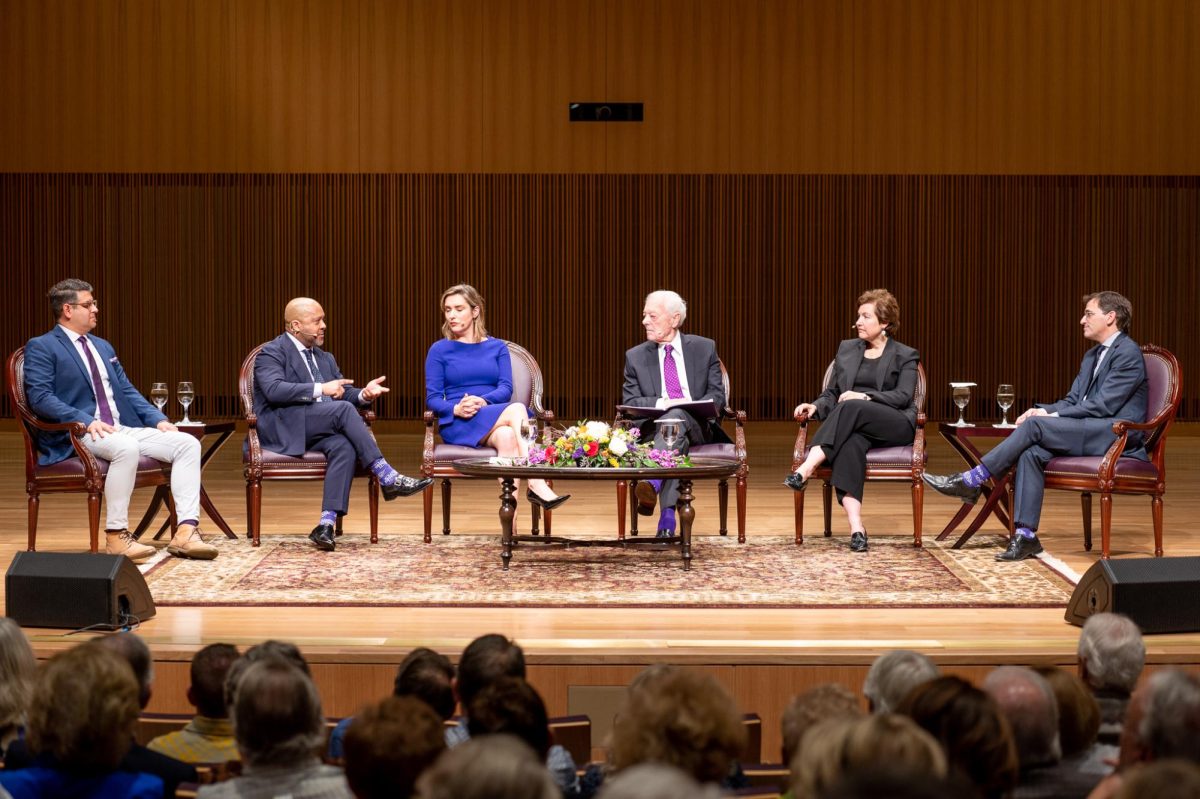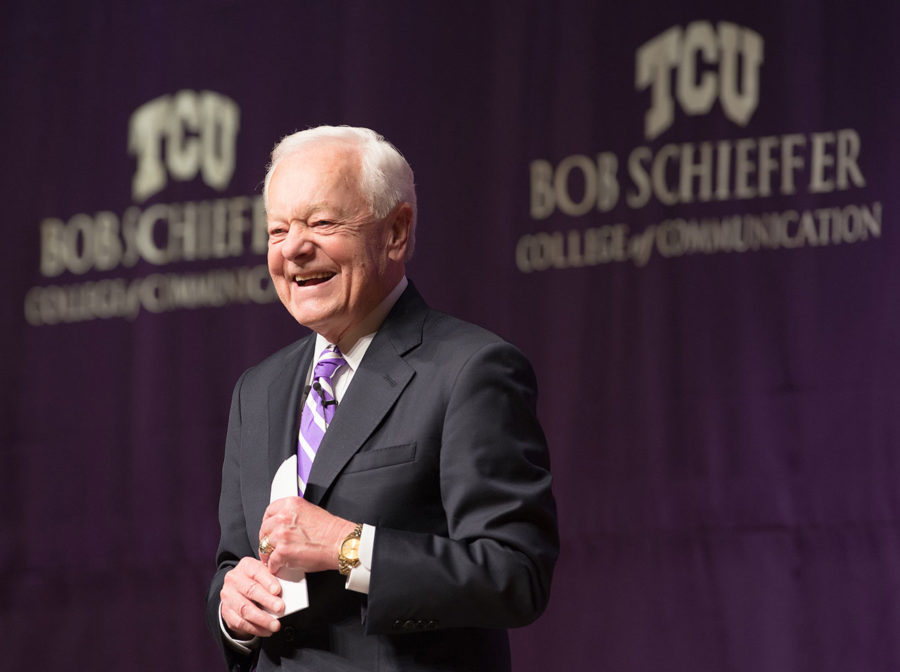Longtime CBS reporter, moderator, and host Bob Schieffer announced he will be retiring this summer after more than 50 years in journalism at the 11th annual Schieffer Symposium Wednesday night. Schieffer, a TCU graduate of the Class of 1959, was the first reporter from Texas to ever report from Vietnam, according to CBS. Schieffer moved to CBS in 1969 and has hosted “Face the Nation” since 1991. He has also moderated three presidential debates. “It’s been a great adventure. You know, I’m one of the luckiest people in the world because as a little boy, as a young reporter, I always wanted to be a journalist, and I got to do that,” Schieffer said at the conclusion of the symposium. Schieffer also acknowledged the Schieffer College of Communication and its rise in the past decade. “I’ve received many forms of recognition through my career over the years but no recognition, no honor that I have received is more important to me than when they put my name…on the College of Communication,” Schieffer said. The symposium itself focused on current news topics such as the rise of the terrorist group ISIS, the verdict regarding Boston bomber Dzhokhar Tsarnaev, and the upcoming 2016 presidential election along with the current state of journalism as a profession and practice. Panelist Holly Williams, a CBS News correspondent, has been reporting from Turkey and other areas of the Middle East since 2012. She discussed the rising threat of ISIS with Schieffer and how it should be handled militaristically. “You can’t airstrike ISIS,” Williams said. “You need effective ground forces which Iraq doesn’t have.” Schieffer then moved on to discuss the recent announcement of a guilty verdict for Dzhokhar Tsarnaev with Gayle King, co-host of “CBS This Morning” and editor-at-large of O, the Oprah Magazine. Tsarnaev, a 19-year-old Chechen involved with the Boston Marathon terrorist attack in April of 2013, was found guilty on all 30 counts he was charged with Wednesday. Seventeen of these charges carry the possible punishment of the death penalty. “It’s so interesting to watch this case progress because when it first happened, the majority of people in Boston wanted the death penalty and now…at last count only 27 percent want Dzhokhar Tsarnaev to get the death penalty,” King said. Dan Balz, Washington Post’s chief correspondent, commented on the upcoming Republican race to be the presidential candidate in 2016 with Schieffer. “You have a series of preliminary races and that is what is starting to take shape,” Balz said. “It is a wide open race.” Balz did say that former Florida governor Jeb Bush does have a financial and name-based edge in the race yet there is still no clear favorite among the Republicans. The panel then switched to discuss the current state of journalism and how it has transformed in a rapidly changing and digitally-dependent world. “I’m worried about whether the journalism of tomorrow will follow the same standards we’ve come to accept in mainstream journalism,” Schieffer said to begin the conversation. Balz said that while the ways people discover and read their news is changing, it is the quality and value of the reporting that will still make it valuable. King agreed with Balz, recognizing the importance journalism still holds in today’s world. “You guys can go to bed one night and the world can be one way and wake up in the morning and it’s different and we get to tell you that,” King said. “That comes with a lot of privilege and a lot of responsibility. P.J. O’Rourke, a freelance political satirist, had a less optimistic outlook on the trajectory of the journalism profession and likened it to the current state of America’s political system. “I’m a little worried about journalism,” O’Rourke said. “We may be over-professionalizing something…I think modern journalists are taking themselves too seriously.” O’Rourke continued to point to this loss of core values as the reason bi-partisan cooperation is at an all-time low in Washington. He said deals were made in the past when politicians from around the country had to stay in Washington and were forced to interact. “Now they all scatter their separate ways,” O’Rourke said. “They’re not friends anymore.” Schieffer concluded the Symposium with his retirement announcement and then acknowledged the Schieffer College of Communication’s rise in prominence over the past decade. “We must strive to be the best in the country,” Schieffer said. “I believe we can do it.”
Categories:
Symposium features Schieffer’s retirement, ISIS and Boston bomber discussion
Published Apr 9, 2015



